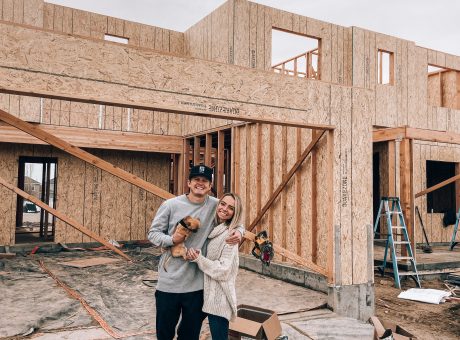
Q&A on Purchasing Realestate
In the past several weeks I have received a plethora of questions regarding Realestate. Because I unfortunately prefer not to send lengthy messages over instagram direct messages I thought it would be better to take a moment and share the most common questions I have been asked in hopes that it will help you.
- How much should I save to buy a home?
This will differ for everyone because each market is different, and when I say market in this sense I don’t mean state or even county. The difference of a few blocks can change house prices drastically.
If you are a first time home buyer you need to have a minimum of 3.5% of the purchase price saved. With that being said there are some limitations on this.
The 3.5% will cover your down payment if you do an FHA loan – you must be a first time home buyer and then you/your realtor will have to negotiate that the seller will pay your closing costs… in a hot market it an be difficult to beat out other offers with this ask.
I recommend that you try to have at least 5-6% of the purchase price saved incase it makes more sense for your to do a conventional loan instead or so you can cover the closing costs.
There is no science and no guarantee on this. Look at 2008 – nearly anyone who bought home in 2007 was “in debt” at that point but after several years the market recovered.
My best advise with this is to buy a property that matches one or more of the following:
Outdated finishings – by changing the finishings flooring, cabinetry, wallpaper, plumbing fixtures etc. you can increase the sale price of your home. By buying an already update home you are certainly saving yourself time and up front money but you will be relying on appreciation more than if you are willing to buy a home that needs some TLC.
Purchase a home in an “up and coming” area – this area may be a place where renters and elderly couples are moving out and younger people are moving in with spare income to do repairs and restoration of properties. On the other hand it may be moving to an area that is not fully developed yet one that will have malls, schools, or other promising things added in the coming years.
Buy a property with good rental potential – this allows you to look at the property as a secondary income when you move rather than looking for a large sale.
3. How can I make a mortgage more affordable?
Although mortgages can seem like a huge feat many times a mortgage will get you more home than the space you were renting for the same amount. What does that mean? Find a way to help cover your cost by using that extra space.
Some spaces will easily divide to provide a basement rental unit – if this is something you want to do you can modify your search to be dual kitchen specific. That can be a challenge so you can cut the expense of changing home into this by looking for a home with a secondary – creating another entrance in the basement typically costs upwards of $2,500.
Rent a bedroom out – if you are comfortable sharing the kitchen and your other living spaces renting a room out can still cover a portion of your mortgage.
AirBnB – if you don’t want a full time tenant stick your extra space on AirBnB although this won’t provide as consistent of income it will also allow you to have your own space other than the days you offer your space online. In addition you can charge a higher nightly rate than to a longer-term renter.
4. 30 years (the average mortgage length) is such a long time – how do I not get trapped?
Be sure when selecting your loan you pick an option that does NOT have a pre-payment penalty – meaning you can pay it off early and not have any repercussion.
Don’t buy at your max budget – when you speak with a lender they will tell you the max amount you can afford. If you find a home for only a portion of that you will have spare income to put toward your mortgage each month – meaning you can pay your home off early and save thousands on interest.
5. I can’t afford the home I want to start my family in – what should I do til I can?
Every person will have their own opinion on this… however most people move every 5-7 years and the younger you are the more frequent that is. Think about how frequently you moved in college.
If you are in your early-mid twenties the probability of you living where you do (whether you own or rent) when you’re kids begin junior high is very low. So I say buy now – buy something that has room to grow into what you see in the next several years. So you don’t find yourself packing up again in one year.


